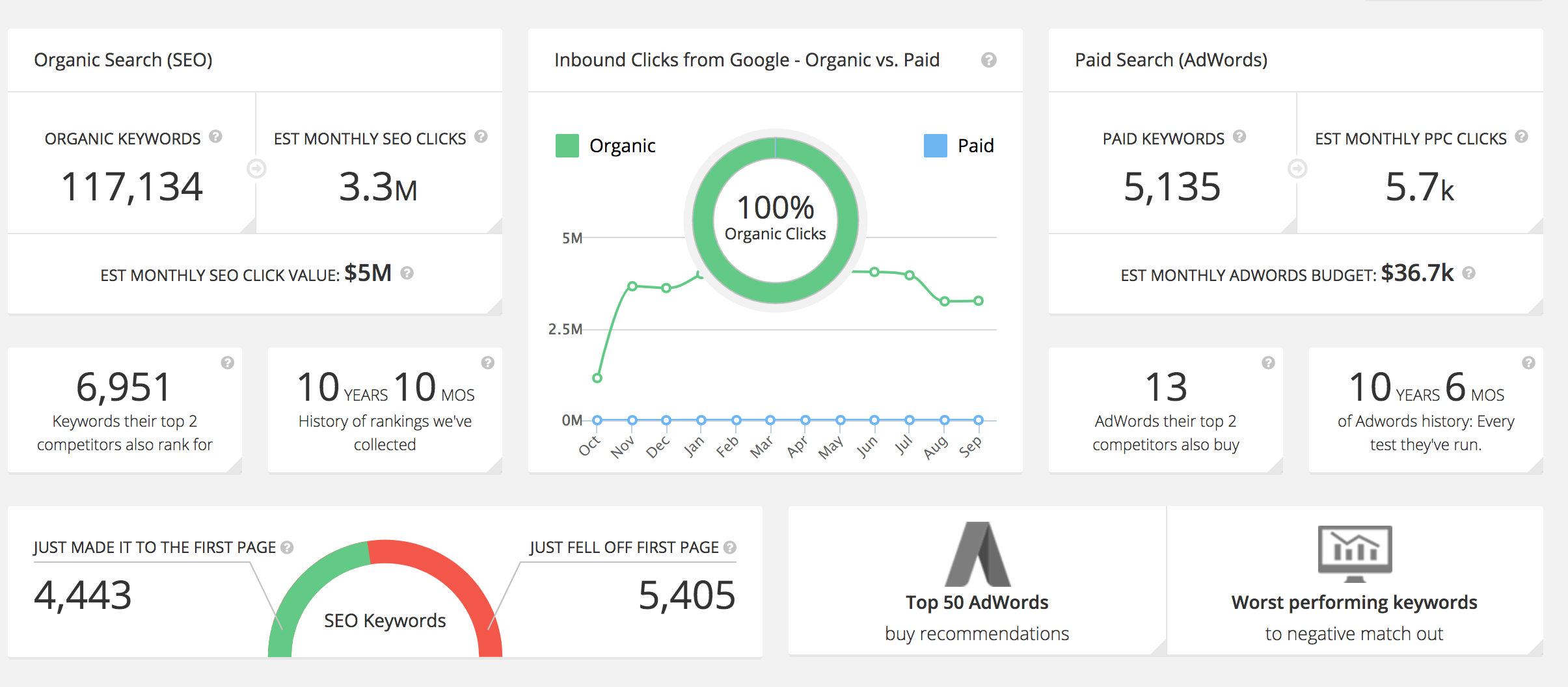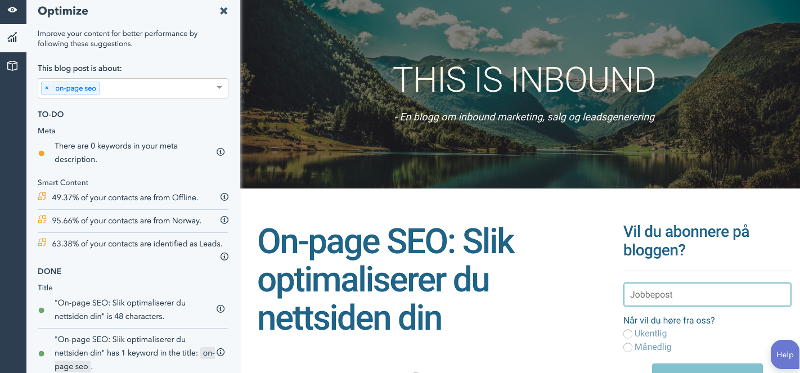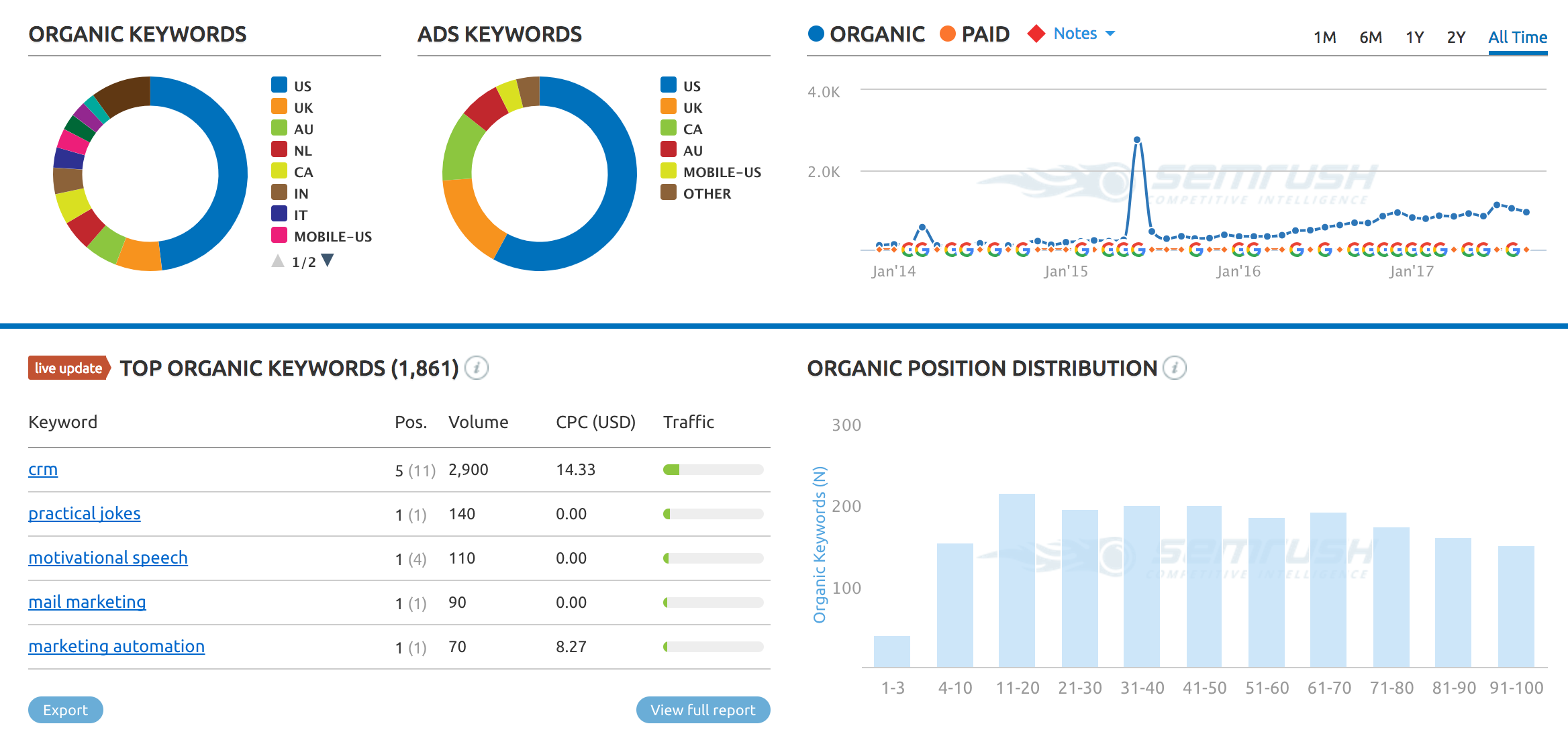If you are working with search engine optimization (SEO), you have probably caught onto the fact...
Are you wondering what it takes to climb to the top of the coveted first page of Google? Have you decided on the keyword you want your website to rank for, but still don’t know where to start? We have put together a list of five tools that can help you on your way, today.
1) Screaming Frog SEO Spider
Start by taking a look at where you are at today. How search engine optimised is the website and is there anything to be gained by focusing on on-page optimisation tactics?
Using Screaming Frog’s “SEO Spider” will give you an overview of where you are at. You will be able to see if all your titles are within the recommended length, if all pages have meta descriptions and how many external and internal links your pages have.
The tool allows you to analyse 500 URL addresses for free, with given scores for each page and each parameter. It looks a little something like this:


2) Google Keyword Planner
Google themselves offer a tool that allows you to identify new keywords and compare search trends. You will be able to see estimated search volume for the different keywords, how difficult it would be to rank for them and estimated bids for these keywords if you were to create ads in Google AdWords.
You will also be able to see how the search volume has changed over time. If you are using Google AdWords you can even create a plan in the tool and export this directly into your AdWords campaigns.
Use the tool to map out the search volume for the keywords you are working on today, maybe variants of these and to discover new keywords that more people are searching for. It might be time to change your strategy if, say, keyword trends changes by seasons in your industry.
3) SpyFu
This tools allows you a peek at what is working well for others in your industry. You simply type in the domain of the website you want to take a closer look at and the tool will show you keywords that are working well for this company, how many clicks they are getting from organic vs. paid search, and how many keywords they rank for on the first page of Google.
You will also get an overview of who is competing with the domain for organic and paid traffic. Pay close attention to what keywords you are placing on the second page of Google for. These are the ones where you with a little extra effort could make a significant difference.
Here is an example of numbers available to you in SpyFly.

4) HubSpot Keywords
If you are already using HubSpot, you have access to an easy to use tool telling you how well you rank for all keywords you enter. You will also be able to see suggested keywords that you have great potential to be ranking well for.
The tools allows you to add up to 1000 keywords, as well as see factors such as ranking, monthly searches, how difficult it is to rank for a keyword and estimated cost-per-click (Google AdWords).
You will also get an overview of what keywords you should create “long tail variations” of. This means that you create a more specific keyword phrase. Instead of “SEO” you could try to rank for “free SEO tools” or “SEO tips for 2017”.
These variations might have less monthly searches, but will provide you with more relevant traffic as the they more clearly define what the person is really looking for.
Another benefit of the tool is that you can optimise all your content as you are working on it. In HubSpot you get “real time” SEO tips, telling you whether your keyword is included in places such as the URL, meta description and title.
It also tells you whether you have used the keyword too much in the copy, as this can be considered as spammy.

5) SEMrush
This is a tool to develop content and SEO strategies. The tool allows you to analyse your own domain, as well as see what others in your industry is doing and what works well for those ranking well.
Enter the domain you want to look at and you will be able to see what organic and paid keywords you are ranking well for, who is seen as the biggest competitors for both paid and organic traffic, as well as how many external domains link to the domain (backlinks).

SEMrush provides extensive data on different parameters that are accessible to you in easy to use reports. You will quickly identify new blog ideas, as well as seeing what keywords you should be optimising existing content for.
Want to perform a SEO analysis that actually gives you an action plan, but still not quite sure where to start? You can download our guide to performing such an analysis with free templates for each step. Get started right now!




